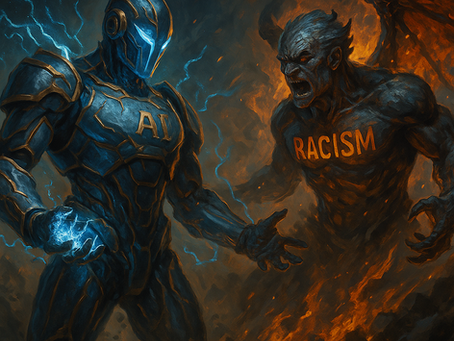top of page

Search


When Models Learn to Think Before Painting
This article explores HunyuanImage 3.0, Tencent’s groundbreaking open-source multimodal model that unifies language understanding, visual reasoning, and image generation. It examines the model’s data pipeline, architecture, Chain-of-Thought workflow, and progressive training strategy, showing how HunyuanImage 3.0 achieves state-of-the-art text-to-image performance while enabling richer control, coherence, and creativity.

Juan Manuel Ortiz de Zarate
Dec 6, 20259 min read


Breaking the Amnesia Cycle in Large Sequence Models
Nested Learning reframes neural models as multi-loop systems updating at different frequencies, revealing that depth stacking hides gradient mechanics and limits continual learning. It interprets optimizers like Momentum and Adam as associative gradient memories and introduces CMS for incremental abstraction. The HOPE module combines self-modification, multi-clock updates, and deep contextual compression, offering a white-box path beyond static backbones for long-context and

Juan Manuel Ortiz de Zarate
Nov 27, 20259 min read


Make Neural Circuits Understandable
The article introduces weight-sparse transformers (models where most weights are zero) to make neural circuits interpretable. These models reveal clear, human-understandable algorithms for language tasks. Sparsity trades off raw capability for clarity, allowing researchers to fully trace mechanisms inside networks and bridge them to dense models for transparency in AI reasoning.

Juan Manuel Ortiz de Zarate
Nov 20, 20259 min read


A Foundation for Agent Collaboration
This article explores the Model Context Protocol (MCP), a standardized interface that enables AI agents to dynamically discover and invoke external tools. It covers MCP’s architecture, real-world applications, and security risks across its lifecycle. By decoupling tool logic from AI behavior, MCP empowers agents to perform complex workflows with greater flexibility, setting a foundation for the next generation of tool-integrated AI systems.

Juan Manuel Ortiz de Zarate
Jul 25, 20259 min read


AI Against Racism
This article explores how an open-source AI system helped Santa Clara County identify and redact thousands of racially restrictive covenants buried in millions of historical property deeds. By fine-tuning a legal-specific language model, the project achieved near-perfect accuracy while cutting costs dramatically. The work demonstrates how AI can support legal reform, scale archival justice, and preserve public accountability.

Juan Manuel Ortiz de Zarate
Jul 4, 202510 min read


The Architecture That Redefined AI
This article offers a deep dive into the seminal paper Attention Is All You Need, which introduced the Transformer architecture. It explores the limitations of recurrent models, the mechanics of self-attention, training strategies, and the Transformer’s groundbreaking performance on machine translation tasks. The article also highlights the architecture’s enduring legacy as the foundation for modern NLP systems like BERT and GPT.

Juan Manuel Ortiz de Zarate
May 27, 20259 min read


Training Harmless AI at Scale
This article explores Constitutional AI, a framework developed by Anthropic to train AI systems that are helpful, harmless, and non-evasive—without relying on human labels for harmfulness. By guiding models through critique–revision loops and reinforcement learning from AI-generated feedback, this method offers a scalable, transparent alternative to RLHF and advances the field of AI alignment and self-supervised safety

Juan Manuel Ortiz de Zarate
May 8, 202511 min read


Foundation Models
Foundation models like GPT-3 and CLIP are reshaping AI by enabling general-purpose systems trained on massive, unlabelled data. This article explores their key concepts—emergence and homogenization—their capabilities across language, vision, and more, and the risks they pose, from bias to environmental impact. Based on the Stanford report, it highlights why foundation models are powerful, unpredictable, and demand responsible development.

Juan Manuel Ortiz de Zarate
May 7, 20259 min read


How Bigger Models Get Better
This article explores the groundbreaking findings of Kaplan et al. on scaling laws for neural language models. It explains how model performance improves predictably with increased model size, dataset size, and compute budget, highlighting power-law relationships. The piece discusses implications for efficient AI training, optimal resource allocation, overfitting avoidance, and future research directions.

Juan Manuel Ortiz de Zarate
Apr 30, 202510 min read


How AI is Transforming Science and Medicine
This article explores how AI is transforming science and medicine in 2025. From breakthroughs in protein engineering and brain mapping to outperforming doctors in clinical diagnosis, AI is becoming an active research partner and clinical assistant. It highlights key findings from Stanford’s AI Index Report, including the rise of virtual labs, predictive healthcare models, AI scribes, and the importance of ethical, inclusive, and regulated deployment.

Juan Manuel Ortiz de Zarate
Apr 15, 202511 min read


Bringing Foundation Models to Small Data
This article explores TabPFN, a transformer-based foundation model designed for small tabular datasets. Trained on millions of synthetic datasets generated via structural causal models, TabPFN learns to predict labels through in-context learning. It outperforms traditional methods like CatBoost and XGBoost in both speed and accuracy, while offering robustness, interpretability, and fine-tuning capabilities. A breakthrough in tabular ML, it redefines what's possible on structu

Juan Manuel Ortiz de Zarate
Apr 11, 202511 min read


Can a Chatbot Make Us Feel Better (or Worse)?
Can AI chatbots comfort us—or make us dependent? A study explores ChatGPT's emotional impact and the ethics of affective design.

Juan Manuel Ortiz de Zarate
Apr 4, 20259 min read


The Brains Behind AI’s Evolution
Discover how neural networks power modern AI, from deep learning to generative models, shaping the future of technology and innovation.

Juan Manuel Ortiz de Zarate
Mar 14, 20259 min read


Diffusion LLM: Closer to Human Thought
SEDD redefines generative AI with human-like reasoning, enabling faster, high-quality text and code through discrete diffusion models.

Juan Manuel Ortiz de Zarate
Mar 7, 20259 min read


Benchmarking AI Across Disciplines
SuperGPQA evaluates LLMs across 285 disciplines with 26,529 questions, testing their reasoning and knowledge beyond traditional fields.

Juan Manuel Ortiz de Zarate
Feb 26, 20259 min read


AI That Thinks Before It Speaks
Optimizing AI reasoning with adaptive test-time computation using recurrent depth transformers for smarter, efficient problem-solving.

Juan Manuel Ortiz de Zarate
Feb 19, 20259 min read


AI, enhancer or threat?
AI is not just replacing jobs; it's empowering 10x professionals, and amplifying their impact in marketing, recruitment, and beyond.

Juan Manuel Ortiz de Zarate
Feb 13, 20259 min read


DeepSeek, the game-changing model
DeepSeek R1 enhances AI reasoning with reinforcement learning and distillation, achieving top-tier performance while maintaining efficiency

Juan Manuel Ortiz de Zarate
Jan 31, 20259 min read


Measuring Intelligence: Key Benchmarks and Metrics for LLMs
A comprehensive review of essential benchmarks and metrics for evaluating Large Language Models, from accuracy to fairness and conversationa

Juan Manuel Ortiz de Zarate
Nov 8, 202410 min read


Orca: The New LLM Teacher
Orca 2: A smaller AI model that rivals larger ones by mastering task-specific reasoning, achieving high performance with less computation.

Juan Manuel Ortiz de Zarate
Oct 9, 20249 min read
bottom of page